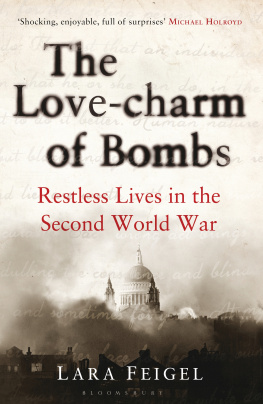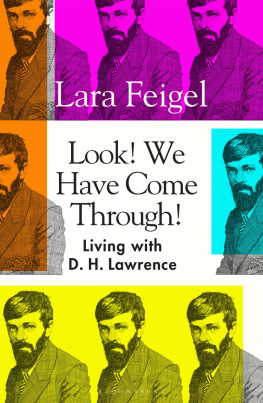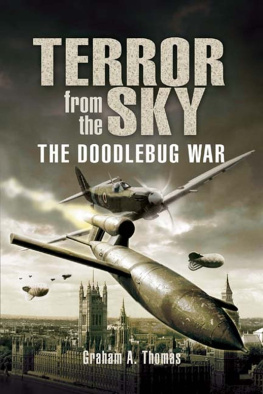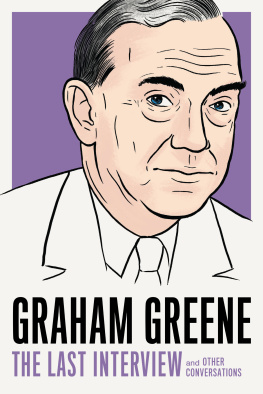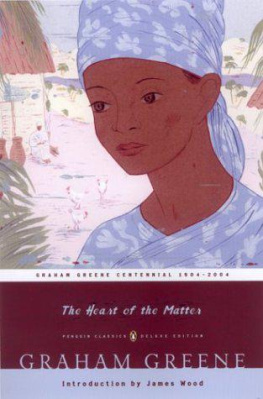Writing this book has been one of the most enjoyable enterprises I have ever undertaken. This is in part thanks to the five writers whose lives I have been immersed in, and in part thanks to the enthusiasm and generosity of friends, family and colleagues, and of all the people whom the book has brought me into contact with along the way.
Thanks goes first to Alex Harris, over whose kitchen table the idea for the book was born, and to Juliet Gardiner and Hannah Mulder, who both helped sustain my faith in the book in its early stages, and in whose company and cottages much of the book has been written. Alex and Juliet have also been generous readers of the manuscript, as have Lisa Appignanesi and Richard Overy, with whom I have engaged in several years of oddly enjoyable discussions about Second World War bombing.
Many colleagues and students at Kings have been supportive friends. Clare Brant and Max Saunders have given Life Writing a home in the English department and me a home in the Centre for Life-Writing Research without which I dont think I would have had the courage to write this kind of book. It is thanks to the inspiration of Neil Vickers that so much of Ireland has found its way into the book. Hannah Crawforth provided happy companionship during our shared months of maternity leave and book finishing. Ellie Bass, Nicola von Bodman-Hensler, Susie Christensen and Natasha Periyan made the final stages of writing into an enjoyable (and energetic) holiday. And Ellie dug out microfilms for me in the British Library while I was buried in Norfolk and clambered through an exceptionally dusty attic searching for Greene letters, while Nicola helped with many of the German translations and references.
I am extremely indebted to the other biographers of my subjects, both for their work and for their generosity in welcoming me into the field. I am especially grateful to William Cash, who not only shared his Greene material with me but allowed me to write part of the book in his beautiful gatehouse, as well as making possible a trip to Achill. Sarah LeFanu and Martin Ferguson Smith have been generous in sharing photographs, sources and archival adventures. Jeremy Treglown has been extremely encouraging throughout the project. I am also indebted to the biographers I do not know personally, especially to Victoria Glendinning and Norman Sherry. The children of Hilde Spiel and Henry Yorke have all been very supportive of my endeavours. Christine Shuttleworth and Felix de Mendelssohn have been munificent in sharing anecdotes, manuscripts and photographs; Sebastian Yorke has been welcoming and helpful, despite some scepticism about the value of biography; Alice Kadel and John House have both been very kind in allowing me access to their parents archives.
Researching the book has taken me on several archival trips and I am grateful for the grants that made these possible and the friends who made them fun. Mark Turner and Jan Palmowski enabled a research grant from Kings College London which funded the trips to America, Vienna and Munich. The Heinrich Bll Foundation funded the trip to Achill. My stay in Austin was made possible by the hospitality of Inga and Richard Markovits. These trips have been turned into holidays by the friends who accompanied and hosted me: Marcel Feigel and Justin Williams in Vienna; Rebecca Welsford, Robert Newell, Vike Plock, Jason Hall and Hannah Crawforth in America; Mary Fairclough and Michelle Kelly in York; Kate Arthur in Cambridge; William Peacock, Julia Schoen and Eveline Kilian in Berlin; and Nicola von Bodman-Hensler in Munich. And I am happily indebted to the staff in numerous archives but especially at the Harry Ransom Center, the Georgetown and Boston University Greene archives, the Bodleian Library, the Wren Library at Trinity College Cambridge and the national libraries of Vienna and Munich, as well as to Georg Fritsch in Vienna who arranged for me to see one of the Spiel archives. I am extremely grateful to Brigitte Petrisch for her meticulous research assistance in Vienna. Several other friends have contributed to this book in their conversation, sharing of knowledge and support. In particular Id like to thank Katie Graham, Caroline Maclean, Beatrice Pembroke, Stephen Romer, Matthew Spender, John-Paul Stonard, Nick Stargardt, John Sutherland and Matt Taunton.
I have been extremely fortunate in both my agent and my publishers. Zoe Waldie believed in both me and the book from the start and was invaluable in helping to shape it in its early stages and in finding it a home at Bloomsbury. Michael Fishwick has been a superb, visionary editor whose passionate enthusiasm for my writing has imbued me with great confidence and made the writing process all the more enjoyable. My desk editor Anna Simpson has been a model of clarity and calm, turning potential crises into solvable situations. I dont think that I could have had a better experience of publishing.
The book is dedicated to my son, Humphrey, though it might be a while before he can read it. Humphreys impending birth provided a happy deadline for the first draft of the book and he himself has been a much happier distraction during the year of editing and proofing the book. I couldnt have done all this without the unstinting support of his five grandparents Ilse, Marcel, Paul, Margaret and Jimmy and I certainly couldnt have done it without my husband John, who has made this year of books and babies not only possible but fun. Neither husbands nor fathers come very well out of the book but John has excelled as both and I am more grateful than I can say.
Dr Lara Feigel is a lecturer in English and the Medical Humanities at Kings College London, where her research is centred on the 1930s and the Second World War. She is the author of Literature, Cinema and Politics, 19301945 and the editor (with Alexandra Harris) of Modernism of Sea: Art and Culture at the British Seaside and (with John Sutherland) of the New Selected Journals of Stephen Spender . She has also written pieces for various publications, including the Guardian , Prospect and History Today . Lara lives in West Hampstead, London.
Allain, Marie-Franoise, The Other Man: Conversations with Graham Greene (Harmondsworth: Penguin, 1984)
Allen, Walter, As I Walked Down New Grub Street (London: Heinemann, 1981)
Babington Smith, Constance, Rose Macaulay: A Biography (London: Collins, 1972)
Beaton, Cecil, Self-Portrait With Friends: The Selected Diaries of Cecil Beaton , ed. Richard Buckle (London: Weidenfeld & Nicolson, 1979)
Beckett, Francis, Firefighters and the Blitz (Wales: The Merlin Press, 2010)
Birkett, Jennifer, Storm Jameson: A Life (Oxford: Oxford University Press, 2009)
Bowen, Elizabeth, A Time in Rome (London: Vintage, 2010)
A World of Love (London: Jonathan Cape, 1957)
Bowens Court and Seven Winters , introduction by Hermione Lee (London: Vintage, 1999)
Collected Impressions (London: Longmans, Green & Co, 1950)
Collected Stories , introduction by Angus Wilson (London: Vintage, 1999)
Listening In: Broadcasts, Speeches and Interviews by Elizabeth Bowen , ed. Allan Hepburn (Edinburgh: Edinburgh University Press, 2010)
Notes on Eire, Espionage Reports to Winston Churchill, 19402 , Aubane Historical Society, ed. Jack Lane and Brendan Clifford, 3rd edn
People, Places, Things: Essays by Elizabeth Bowen , ed. Allan Hepburn (Edinburgh: Edinburgh University Press, 2008)
The Heat of the Day , introduction by Roy Foster (London: Vintage, 2008)
The Last September , introduction by Victoria Glendinning (London: Vintage, 1998)
The Mulberry Tree: Writings of Elizabeth Bowen , ed. Hermione Lee (London: Vintage, 1999)
The Shelbourne (London: Vintage, 2001)
Bowen, Elizabeth, Greene, Graham and Pritchett, V. S., Why do I Write? An Exchange of Views (London: Percival Marshall, 1948)
Next page
